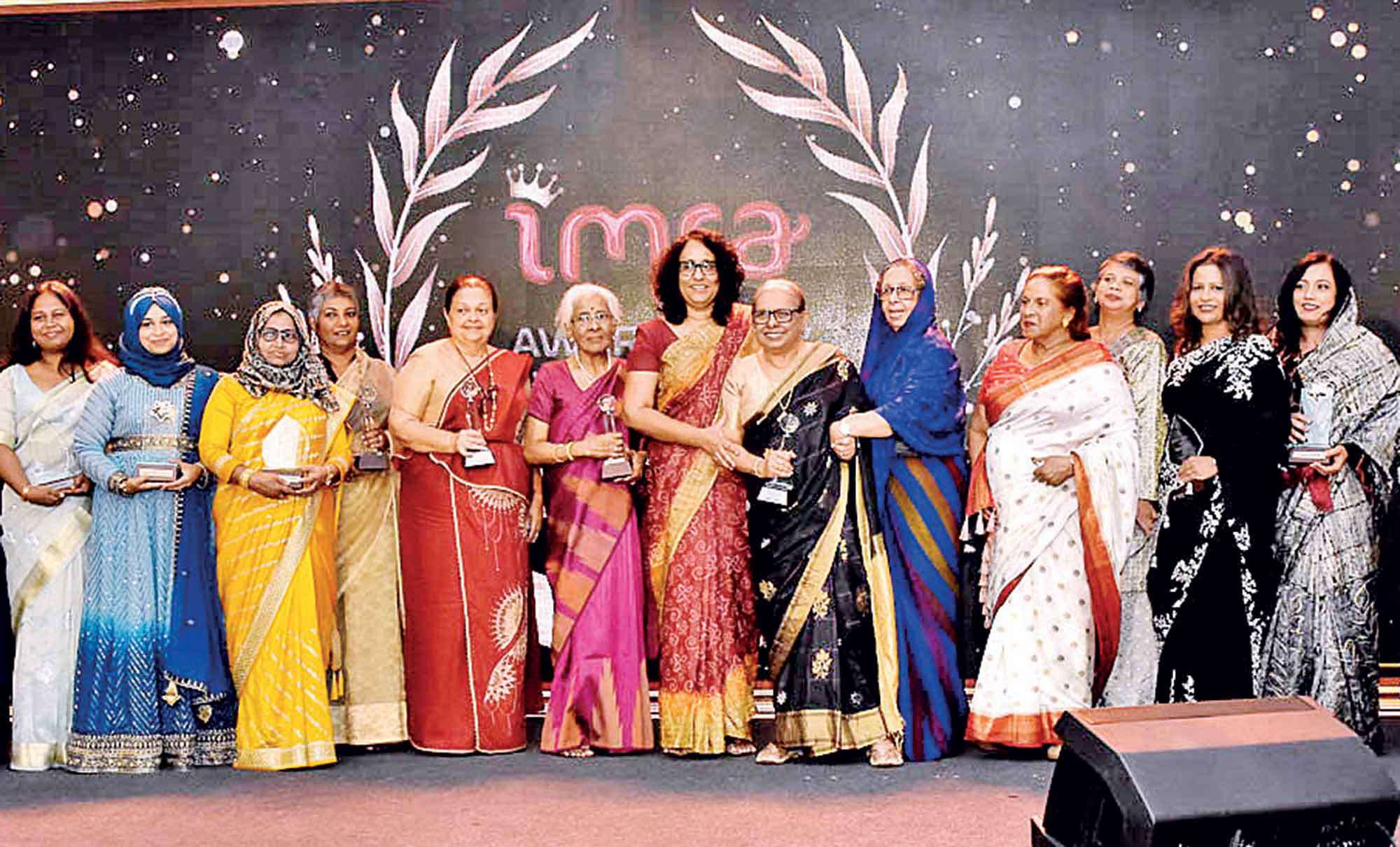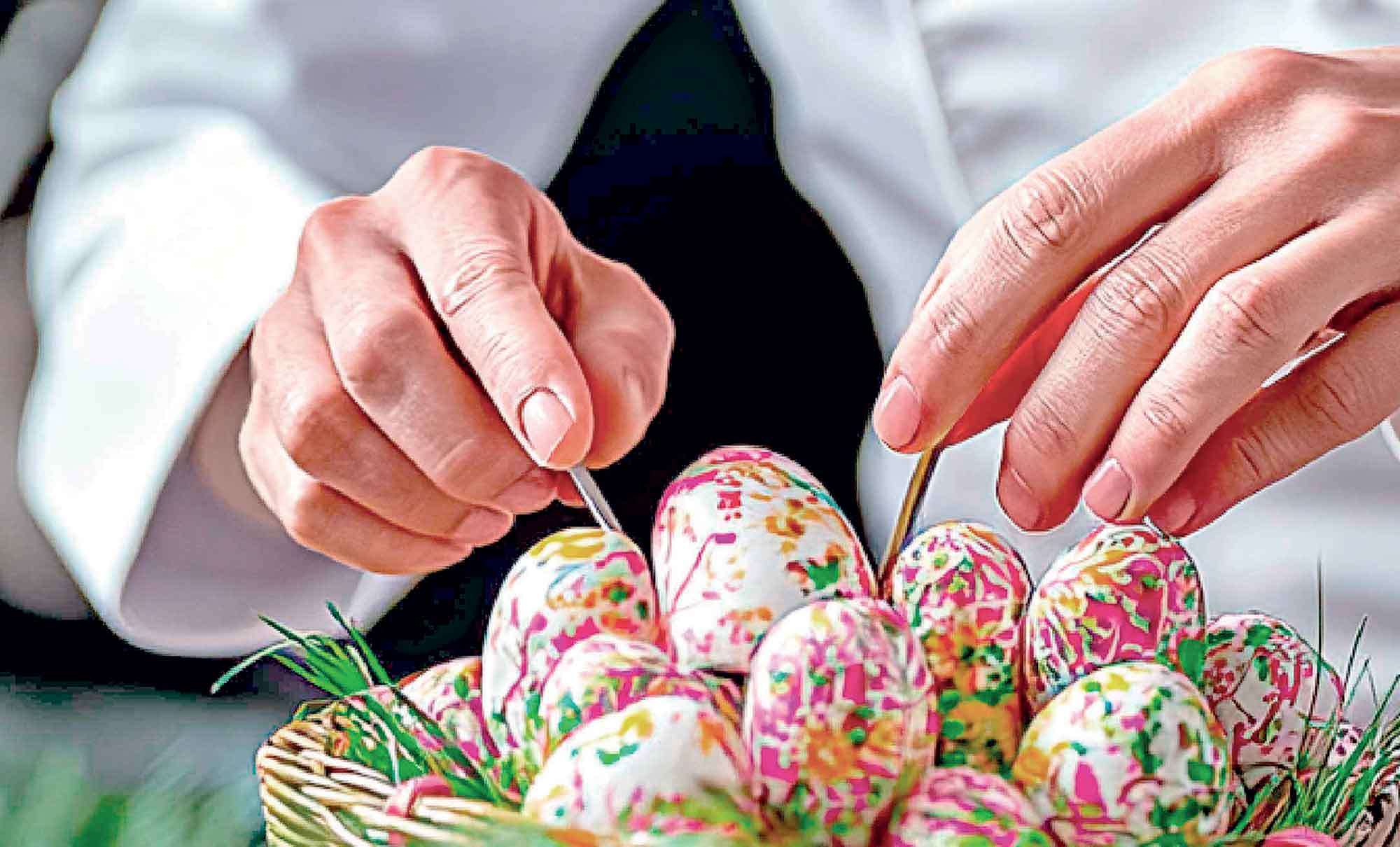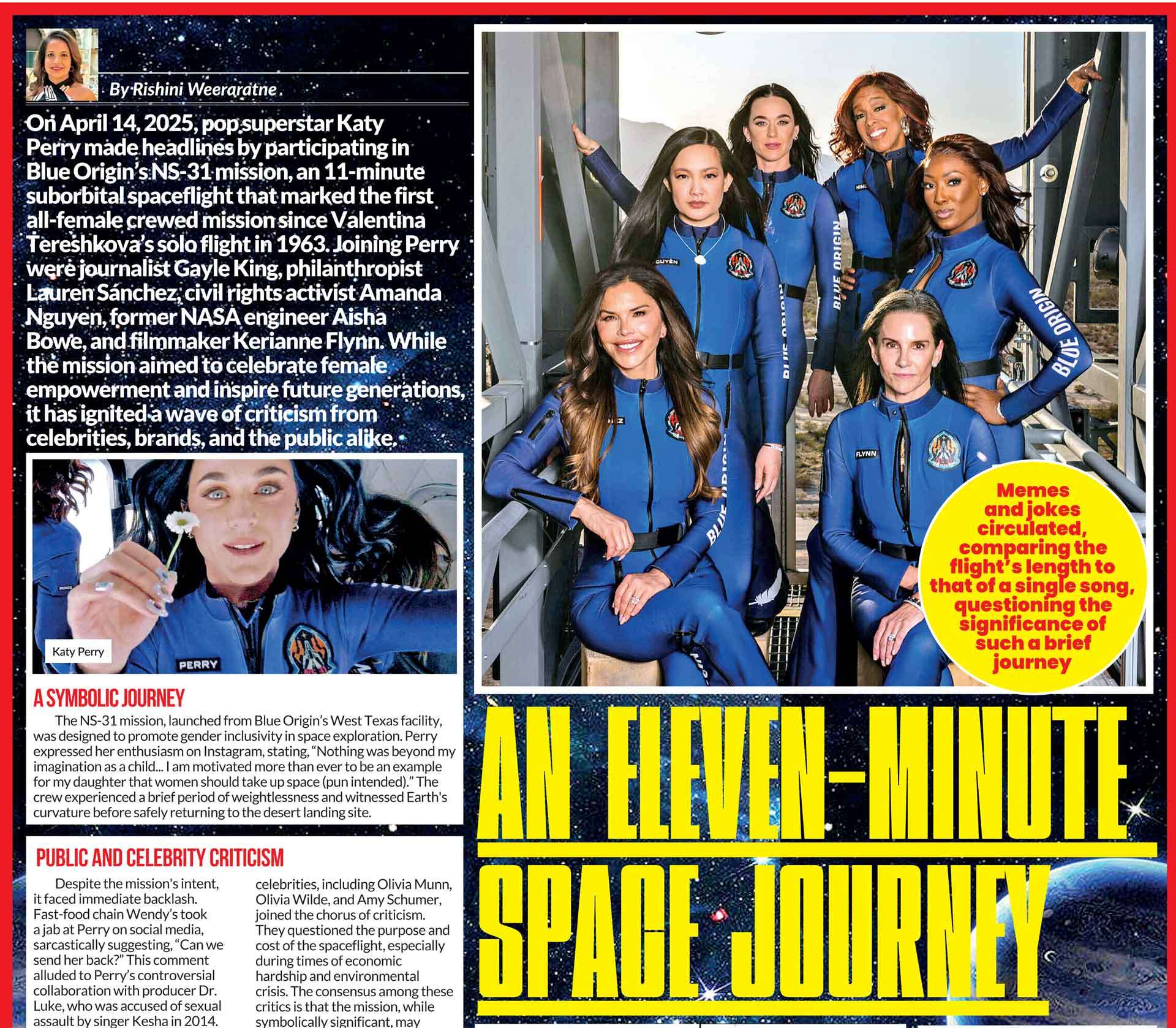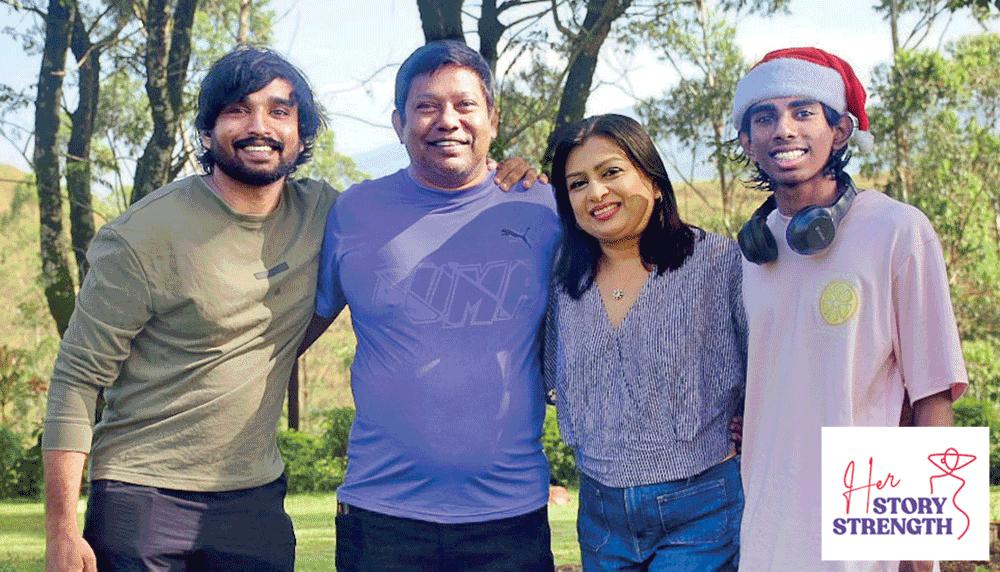
Q You have over 25 years of experience in the tea industry. Can you take us back to the beginning; what inspired you to enter this field?
 I had the opportunity to join Hayleys after completing my Diploma in Computer System Analysis and Design at NIBM. At the time, Hayleys’ HR department directly contacted NIBM, requesting interns. Fortunately, I was one of the nominees, and after a comprehensive exam and interview, I was selected as a trainee Accounts Assistant at Hayleys Shangkalpam, (garment factory head office). Initially, I thought my career path would lead to accounting. However, when the factory closed due to a management decision, I was offered a position at Hayleys Plantations Management as an Accounts Assistant. This move completely changed my career trajectory. I was assigned to handle estate accounts for nineteen estates under Talawakelle Plantations. Regular audits and estate visits introduced me to the world of tea, the breath-taking landscapes of the hill country, and the hardworking women who play a crucial role in the tea industry. Witnessing their struggles reshaped my perspective, inspiring me to make a difference in their lives someday.
I had the opportunity to join Hayleys after completing my Diploma in Computer System Analysis and Design at NIBM. At the time, Hayleys’ HR department directly contacted NIBM, requesting interns. Fortunately, I was one of the nominees, and after a comprehensive exam and interview, I was selected as a trainee Accounts Assistant at Hayleys Shangkalpam, (garment factory head office). Initially, I thought my career path would lead to accounting. However, when the factory closed due to a management decision, I was offered a position at Hayleys Plantations Management as an Accounts Assistant. This move completely changed my career trajectory. I was assigned to handle estate accounts for nineteen estates under Talawakelle Plantations. Regular audits and estate visits introduced me to the world of tea, the breath-taking landscapes of the hill country, and the hardworking women who play a crucial role in the tea industry. Witnessing their struggles reshaped my perspective, inspiring me to make a difference in their lives someday.
Q As General Manager Operations at Regency Teas, what does a typical day look like for you?
My day starts with a cup of tea shared with my husband; a moment of light conversation that I cherish. Upon arriving at the office, I greet everyone, from the security guards to the gardener. Before diving into work, I take a moment of gratitude for the new day. Emails start pouring in, typically between 100 to 200 daily from various parts of the world, including Sri Lanka. As they load, I review my daily operations update and to-do list, a habit I picked up from my boss, Mr. Damascene Perera. A handwritten to-do list remains invaluable, even in the digital age. Operations demand constant attention. I visit the factory premises multiple times a day, solving issues first-hand while mentoring colleagues to impart practical knowledge. My day includes key operational meetings, order tracking, and client communications. I return home to my husband and two sons (ages 23 and 17), where we share dinner and unwind over a cup of tea before bed; a fulfilling end to the day.
My day starts with a cup of tea shared with my husband; a moment of light conversation that I cherish.
Q The tea industry has evolved significantly over the years. What are some of the biggest changes you’ve witnessed, and how have they impacted your role?
When I started, communication was challenging. I was given a large, expensive cellular phone (a Celtel) for factory coordination. Unlike today’s smartphones, it had an extendable antenna for better reception. Computers were limited to specific access times and locations. Most work was done manually in large record books, handled only by senior employees. Faxing was the primary mode of client communication, leading to delays and inefficiencies. Today, technology has revolutionized operations. Emails, digital records, and laptops for all office staff have streamlined workflows. The world is now at our fingertips, enabling instant communication and faster decision-making.
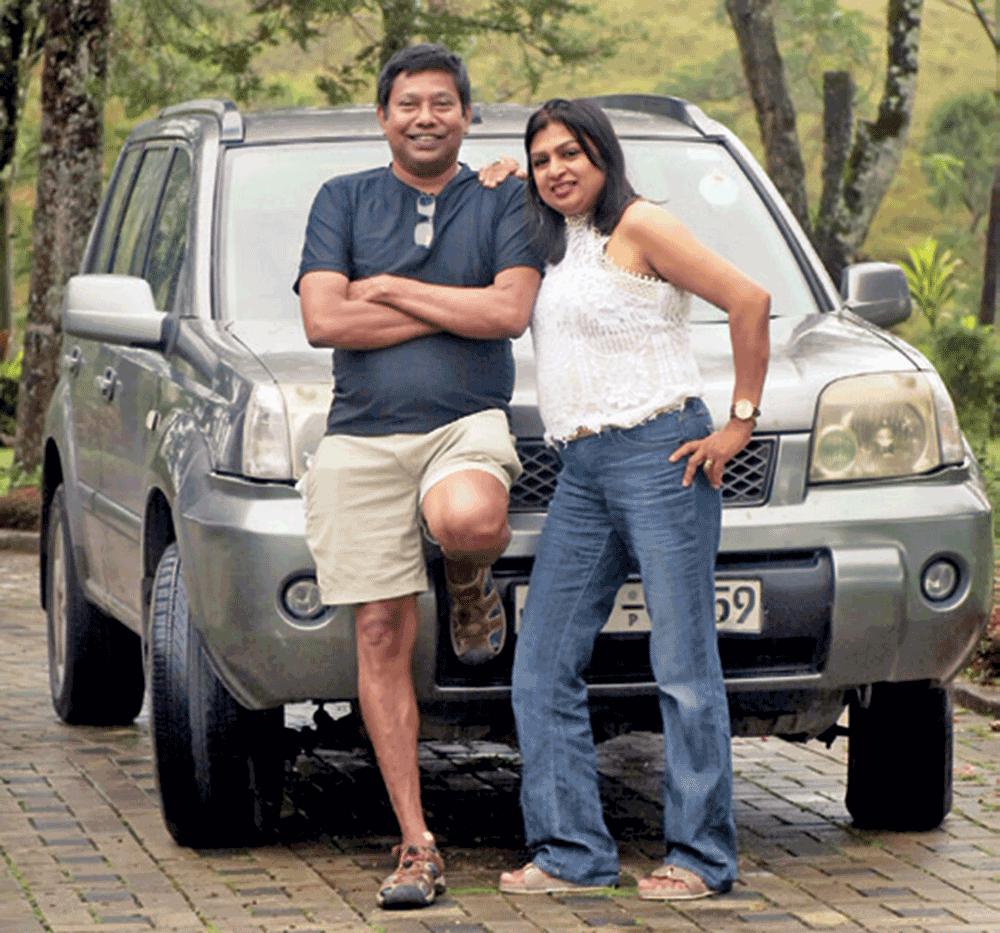
Q You lead a diverse team of 140+ staff. What is your leadership philosophy, and how do you ensure a culture of accountability and high performance?
I believe in situational leadership and leading by example. Trust, ethics, and transparency are at the core of our company culture. We create a positive work environment with spacious offices, lunch areas, and background music. An open-door policy ensures that employees can voice concerns freely, whether work-related or personal. This approach has led to high staff retention and lower turnover.
Q Problem-solving is a key aspect of your role. Can you share a major challenge you faced and how you successfully navigated it?
The COVID-19 pandemic was the most challenging period of my career. Our factory and office operations came to a standstill, leaving daily wage workers without income or food. Our immediate response was to provide food rations and financial support while ensuring strict health guidelines. After consulting health authorities, I managed to restart the factory within a week with necessary precautions. Despite management concerns about health risks, our employees fully supported these efforts. By maintaining hygiene, implementing sanitization, and securing timely vaccinations, we successfully continued operations without a single employee infection. This was a testament to the resilience and teamwork of Regency Teas.
Q You have a strong commercial approach. How do you balance operational efficiency with financial sustainability?
We operate with tight budget controls and a strong monitoring framework. Pre-costing and post-costing analyses ensure accountability for all expenses. We also outsource non-core functions, allowing us to focus on our primary expertise; tea exports. These measures help maintain both efficiency and financial sustainability.
Q Regency Teas exports globally. What are the unique challenges of managing international supply chains, and how do you overcome them?
Each market has unique challenges. The rising awareness of tea’s health benefits has boosted global demand, even in traditionally coffee-drinking nations like the U.S. However, geopolitical tensions in Russia, Ukraine, and Israel have disrupted trade. Sanctions make transactions difficult, impacting payments and logistics. Additionally, competing tea-producing nations like Kenya, China, and Vietnam offer lower-priced teas, challenging Sri Lanka’s premium pricing. Maintaining Ceylon Tea’s quality is crucial to sustaining our competitive edge.
Q How has ERP implementation changed operations at Regency Teas?
ERP systems have significantly improved operational efficiency by enabling real-time data updates and reducing manual processes. However, the biggest challenge remains changing employees’ mindsets toward adopting new technology.
Early in my career, I attended industry events where I was often one of the only women in the room.
Q What emerging trends in the tea industry excite you the most?
The increasing awareness of tea’s calming and health benefits excites me. New blends incorporating herbs and functional ingredients are gaining traction. However, a perfectly brewed cup of high-grown Ceylon Tea remains unmatched.
Q The tea industry is traditionally male-dominated. Have you faced any challenges as a woman in leadership, and how have you tackled them?
The tea industry’s leadership levels are male-dominated. Early in my career, I attended industry events where I was often one of the only women in the room. At times, information was withheld, and some colleagues attempted to undermine my work. I persevered by working harder and proving my capabilities. Finding a mentor can be invaluable, though I navigated this journey independently. Today, I make key operational decisions at the management level, proving that commitment and resilience lead to success.
Q What advice would you give to young professionals, especially women, aspiring to enter the tea and supply chain industries?
It’s like learning to swim; you have to jump in. The tea industry offers diverse career paths, from buying and brokering to tasting and logistics. Women are now excelling in previously male-dominated roles. Commitment and a willingness to learn will open doors.
Q If you could go back in time and give your younger self one piece of career advice, what would it be?
Relax, and give yourself some credit.
Q What keeps you motivated after more than two decades in the industry?
Every day presents new challenges. Tackling them with an open mind and ending the day with a sense of accomplishment keeps me going.
Rapid Fire Round
- Tea or Coffee? Ceylon Tea

- Your go-to stress reliever? Making jewelry, or reading a self-improvement book with a cup of tea
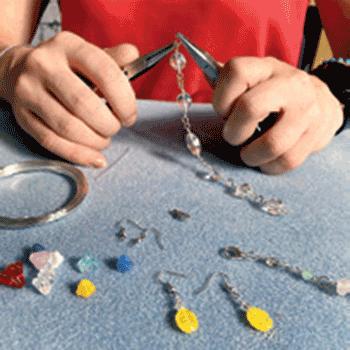
- One word that describes your leadership style? Situational Leadership.

- The best career advice you’ve ever received? Never say no to a challenging opportunity.
- A book or podcast that has inspired you? Leadership Guide by Robin Sharma
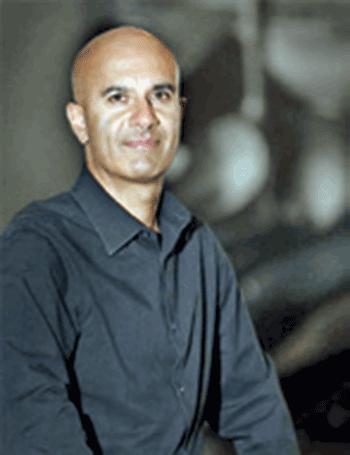
- Your dream travel destination? Switzerland in the Winter.
- If not in the tea industry, what career would you have chosen? I would probably have chosen the Garment industry. Another unique and challenging industry that also involves a lot of women.
- One thing people don’t know about you? I love upscaling things on my own. I love repairing my shoes, handbags, jewelry, and clothes and giving them a fresh new look.




